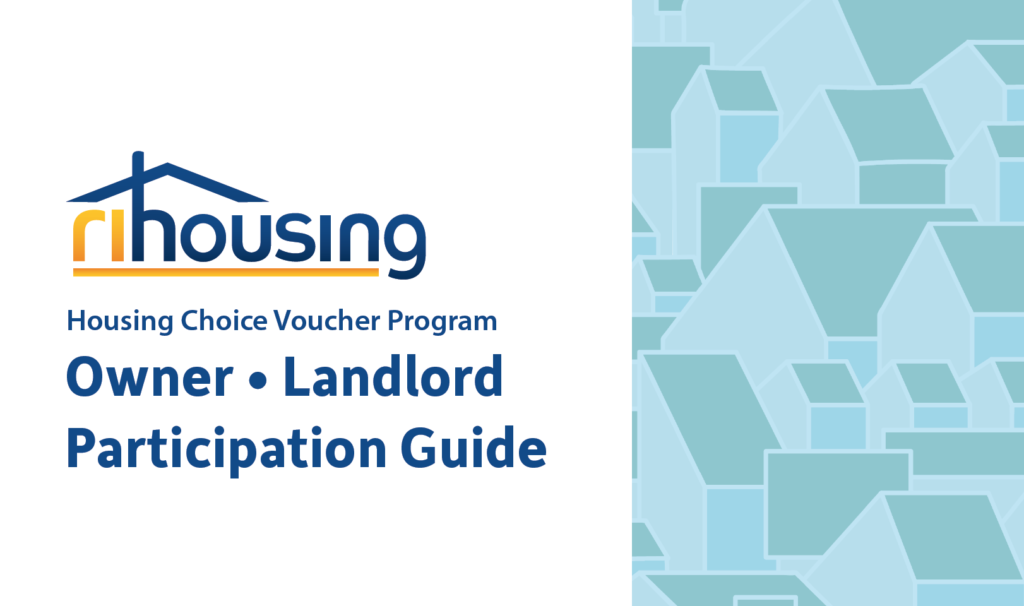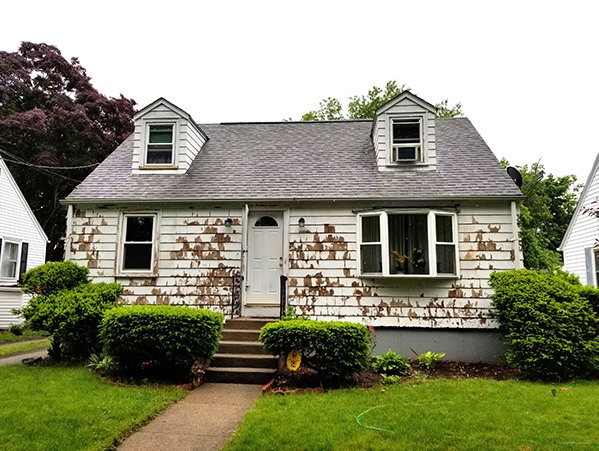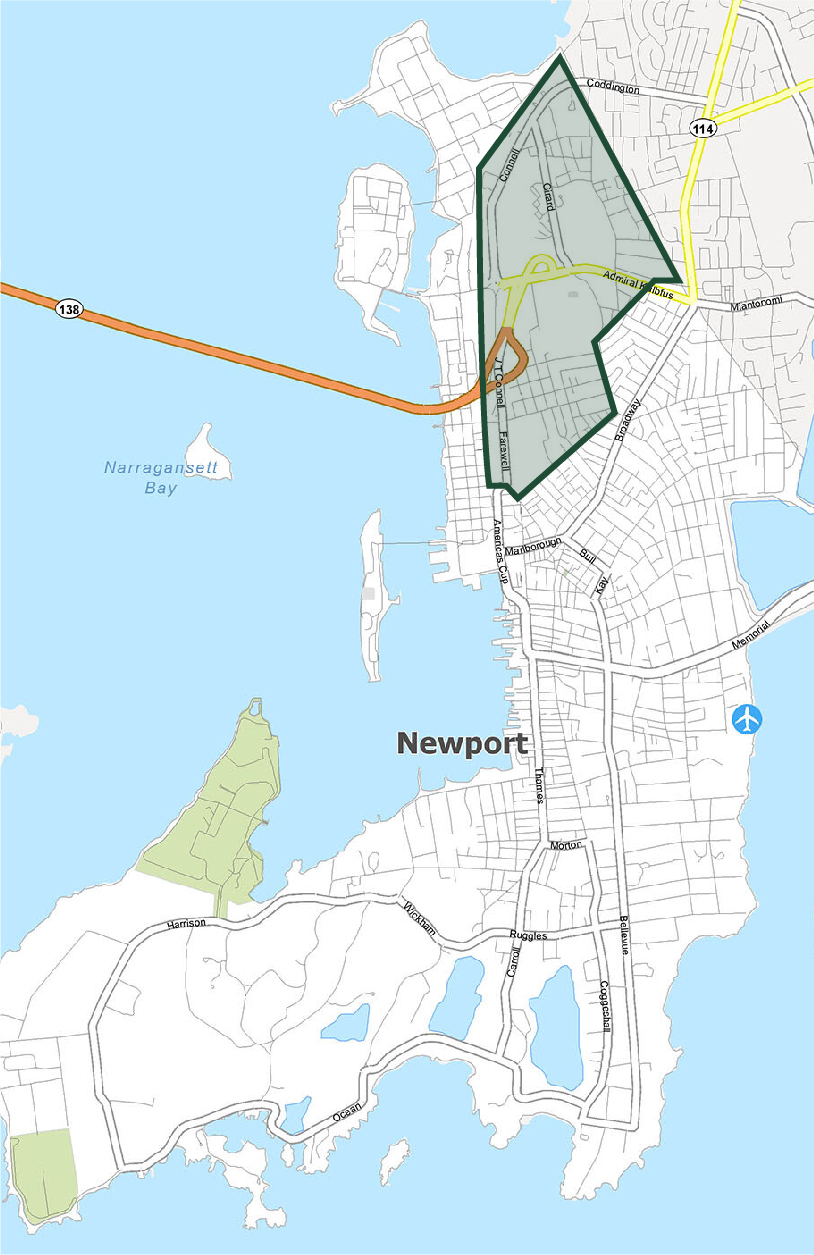Landlord Partnership Program
RIHousing has several landlord incentives to encourage landlord participation in the Housing Choice Voucher Program.
Why partner with RIHousing’s Housing Choice Voucher Program?
FINANCIAL INCENTIVES
$2,000 for the first apartment rented with the program;
$500 for each new unit thereafter.
- To increase landlord participation and create new housing opportunities for households with vouchers, RIHousing is offering landlords $2,000 for their first new unit with the program. Thereafter, landlords will receive $500 for every new unit leased with the program.
- Current participating landlords are eligible for the $500 incentive for each new unit leased with the program.
Properties must be located in our jurisdiction.
INTERESTED? CONTACT: Beverly Cournoyer bcournoyer@rihousing.com
What is the Housing Choice Voucher Program (HCVP)?
- Federally funded program administered by RIHousing
- Provides housing assistance to eligible families
- Enables families to obtain safe, healthy homes
- Subsidy provided for a portion of each tenant’s monthly rent
- The landlord is paid directly and promptly
What is the Housing Choice Voucher Program?
The Housing Choice Voucher (HCV) Program, formerly referred to as Section 8, is the federal government’s major program for helping eligible households rent safe, healthy and affordable homes by paying some or all of a tenant’s rent and utility costs. Administered by public housing authorities (PHAs), the program assists low-income individuals and families in being able to afford renting in a privately owned, market rate rental unit. RIHousing serves as a PHA for 19 communities in Rhode Island and administers housing choice vouchers in those municipalities.
How does the HCV Program work?
Once a tenant is issued a voucher, they search for a unit that meets their needs and where the owner agrees to rent to them. The HCV Program pays a portion or all of a tenant’s rent, to help make their housing costs more affordable. Tenant’s typically pay between 30% – 40% of their income for rent and utilities, and RIHousing pays the rest.
How much rent can I charge?
It is up to property owners to determine the asking amount of rent for their units. Under program guidelines, the rent must be reasonable when compared to similar units in the area where the unit is located. If a unit’s rent is considered unreasonable, the tenant will be unable to rent it with their voucher. Please note that landlords cannot charge tenants with a voucher more than they would charge a tenant without a voucher.
Can I screen tenants with a voucher?
Yes, landlords are encouraged to screen tenants with vouchers as they would screen any other tenant. It is illegal to discriminate against any tenant due to race, ethnicity, sex, gender, marital status, presence of children or disability.
Will RIHousing inspect my unit?
Yes, all units that are rented with a housing choice voucher must be inspected before a tenant can move in. Currently, all units must be vacant at the time of inspection, which ensures that all aspects of the unit can be fully inspected. This rule also ensures that appropriate social distancing can be in effect for inspections. After that, so long as the unit passes inspection, units are inspected every two years for as long as the tenant lives there. Units are inspected to ensure that they are safe, sanitary and up to code.
Can I evict a tenant if they have a voucher?
Yes, landlords can evict a tenant with a voucher in accordance with state and local laws. It is extremely rare that participants in RIHousing’s HCV Program are evicted. Landlords are encouraged to contact RIHousing if they are having any issues with a tenant.
What are the benefits of renting to a participant in the HCV Program?
Renting to a tenant with a voucher can provide peace of mind in knowing that RIHousing’s portion of the rent will always be paid.
If a tenant should lose part or all of their income, RIHousing adjusts how much rent they owe, to ensure the landlord always receives the full amount of rent, and to ensure the tenant is only putting between 30% – 40% of their income towards housing costs. Additionally, you do not have to worry about a unit sitting vacant because you can’t find a tenant. Due to the high cost of housing in Rhode Island, there are many tenants with vouchers looking for housing.
RIHousing also has a landlord mitigation fund that provides protection for landlords who rent to tenants with vouchers. This fund provides monetary reimbursement to landlords who incur certain expenses related to tenant related issues. In certain instances, it reimburses for issues identified during the move-in inspection.
How do I become a landlord in the HCV Program?
There is nothing a landlord needs to do to pre-qualify or sign up for the program. Once a landlord finds a tenant with a voucher, their rental unit must pass inspection and the landlord has to sign a contract with RIHousing.
What are the roles of the tenants, landlords/owners and RIHousing?
Once RIHousing approves a tenant’s rental unit, the family and the landlord sign a lease, and at the same time, the landlord and RIHousing sign a Housing Assistance Payment (HAP) contract that runs for the same term as the lease. This means that everyone – the tenant, landlord and RIHousing – have obligations and responsibilities under the HCV program.
LANDLORDS/OWNERS: The role of the landlord/owner in the voucher program is to provide decent, safe, and sanitary housing to a tenant at a reasonable rent. The unit must pass the program’s inspection and be maintained up to those standards for as long as the owner rents to the tenant with a voucher. The landlord is expected to provide the services agreed to as part of the lease signed with the tenant and the contract signed with RIHousing.
TENANTS: When a family selects a housing unit, RIHousing must approve the unit and lease to ensure that the unit is located in one of the 19 towns RIHousing’s voucher holders can lease in, that the rent is reasonable, and that the unit passes inspection. If approved, the family signs a lease with the landlord for at least one year. The tenant may be required to pay a security deposit to the landlord. After the first year, the landlord may renew the lease or allow the tenant to remain in the unit on a month-to-month lease. Tenants are expected to comply with the lease and the program requirements, pay their share of rent on time, maintain the unit in good condition and notify RIHousing of any changes in income or family composition.
RIHOUSING: RIHousing administers the voucher program, providing families with housing assistance by entering into a contract with the landlord to provide housing assistance payments (HAP). If the tenant or landlord fails to meet obligations under the lease, RIHousing has the right to terminate assistance payments. RIHousing reexamines the tenant’s income and composition at least annually, and conducts inspections every other year.
HCVP Owner/Landlord Participation Guide
 The following guidebook provides information on most common areas of interest on being a landlord for a HCV Program tenant.
The following guidebook provides information on most common areas of interest on being a landlord for a HCV Program tenant.
Landlord Resources
- Family Voucher Responsibilities
- Small Area Fair Market Rate (FMR) Payment Standard, 2024
Fair Market Rents (FMRs) are set by the U.S. Department of Housing and Urban Development (HUD) and used to determine the maximum rent a landlord can charge in their specific location. - The Rhode Island Landlord-Tenant Handbook

LeadSafe Homes Program
Was your home built before 1978?
If so, you may have lead paint in your home. Our LeadSafe Homes program offers forgivable loans to help reduce the hazards of lead in the home.

HousingSearchRI
Landlords can market their property in this free online housing locator created to help tenants find housing and landlords fill vacancies.

LEADSAFE HOMES PROGRAM
If so, you may have lead paint in your home. Our LeadSafe Homes program offers forgivable loans to help reduce the hazards of lead in the home.

HousingSearchRI
Landlords can market their property in this free online housing locator created to help tenants find housing and landlords fill vacancies.
FAIR HOUSING PRACTICES ACT
Newly passed legislation in Rhode Island now makes it illegal to discriminate against a potential tenant based on their source of income. This includes discriminating against tenants because they receive a housing choice voucher. This discrimination may include advertisements that say “No Section 8 allowed” or telling a potential tenant a unit is no longer available after learning they have a voucher. Click here to learn more.
LANDLORD MITIGATION: Protecting the Owners’ Assets
RIHousing offers a Landlord Mitigation program that offers owners limited financial assistance in the event that a tenant causes damage to the apartment in excess of normal wear and tear, non-payment of rent should the tenant abandon the property with a balance of unpaid rent, and vacancy payment for up to three (3) months if the tenant leaves without proper notification and the landlord is unable to rent the apartment. Landlords must notify RIHousing staff when issues first arise to prevent and/or mitigate damages. Coverage is limited to $2,000 and extends for the first two (2) years of tenancy, or until funds are depleted, starting on the move-in date. Landlords must submit damage claims to RIHousing at landlords@rihousing.com
Learn more and partner with us!

